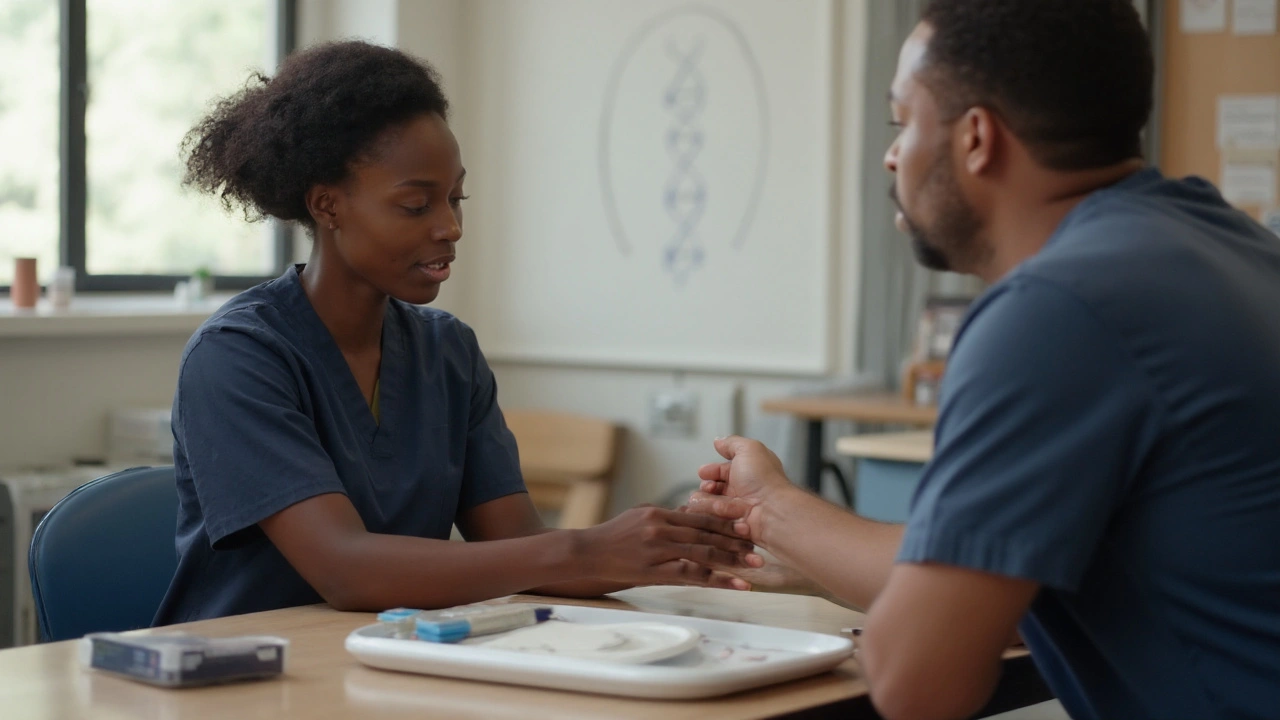HCV Prevention: Quick Tips to Keep the Virus Out
Hepatitis C, often called HCV, spreads through blood. If you know how it travels, you can stop it before it starts. This guide breaks down the basics and gives you easy actions you can take right now.
How Hepatitis C Spreads
Most people catch HCV when blood touches another person’s blood. The common routes are sharing needles for drugs, getting tattoos or piercings with unsterilized tools, and, less often, unsafe medical procedures. Mother‑to‑baby transmission can happen, but it’s rare. Casual contact – hugging, shaking hands, or sharing dishes – does not spread the virus.
Practical Prevention Tips
1. Never share needles or syringes. If you use drugs, look for a clean‑needle program or ask a health clinic for safe equipment. Even a tiny amount of old blood on a needle can carry the virus.
2. Choose reputable tattoo and piercing studios. Ask the artist to show you sterilized tools or new disposable needles. If they can’t prove cleanliness, walk away.
3. Keep personal grooming tools to yourself. Razors, nail clippers, and toothbrushes can hold tiny blood drops. Use your own, and wash them with soap and hot water after each use.
4. Get tested if you think you’re at risk. A simple blood test tells you if you have HCV. Early detection means early treatment, which can clear the virus for most people.
5. Practice safe sex. While the risk is lower than with blood‑borne routes, using condoms reduces any chance of blood contact during intercourse.
6. Follow medical safety rules. If you’re having a medical procedure, ask the staff how they sterilize equipment. In hospitals and clinics, most places already follow strict guidelines, but it never hurts to be sure.
Sticking to these habits doesn’t take much extra time, and it makes a big difference. Your liver works hard to filter toxins, so protecting it from HCV is a smart move for long‑term health.
Remember, HCV is preventable. By staying aware of how the virus spreads and taking a few simple steps, you can keep yourself and your loved ones safe. If you have any doubts, talk to a pharmacist or doctor – they can point you to local resources and testing sites.
Take action today: check your supplies, ask questions, and get tested if needed. Your liver will thank you, and you’ll have peace of mind knowing you’ve done everything you can to stop hepatitis C before it starts.
Vaccination and Genotype 3 Hepatitis C: What Protects You in 2025
No vaccine exists for Hepatitis C. See why vaccines for Hep A, Hep B, and others still protect people at risk of genotype 3 Hep C and chronic liver harm in 2025.

